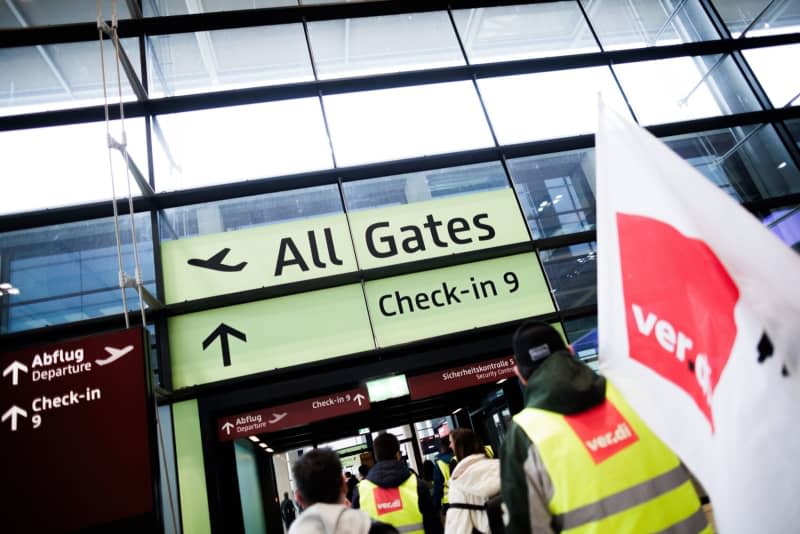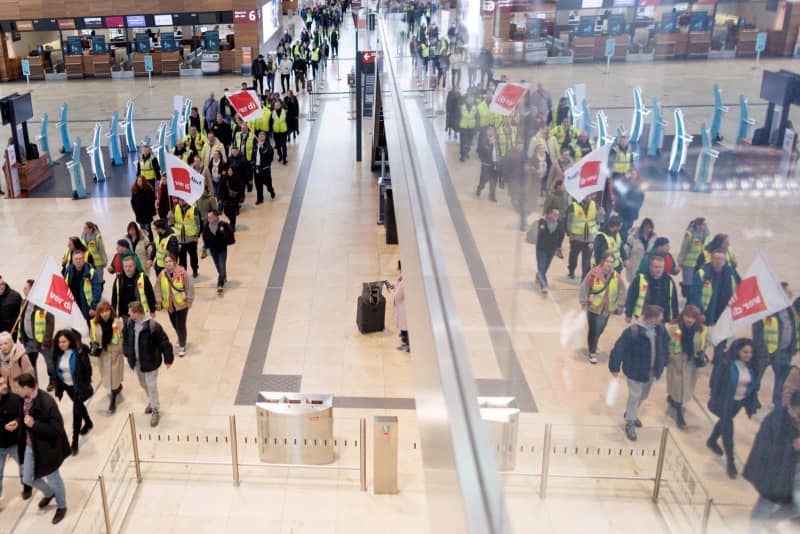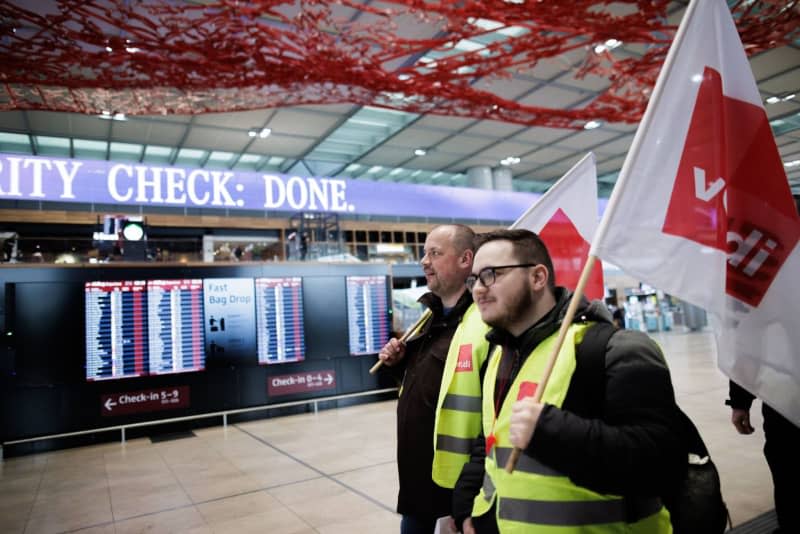Security staff strikes at 5 German airports halt hundreds of flights

Renewed strikes by security staff brought operations at five German airports to a virtual standstill on Thursday.
The airports affected were Berlin, Hamburg, Stuttgart, Karlsruhe/Baden-Baden and Cologne/Bonn, where the industrial action began on Wednesday evening.
All departures were cancelled at the airports because passengers and goods could no longer pass through security checks. There were also numerous cancellations of landings.
According to estimates by the airport association ADV, more than 580 flights are likely to have been cancelled and 90,000 travellers will have to reschedule.
The trade union verdi has also called for strikes by security staff in Hanover, Dortmund, Weeze, Dresden, Leipzig and Karlsruhe/Baden-Baden on Friday.
Germany's largest airport in Frankfurt is not affected by the aviation security staff strikes this Thursday and Friday. However, there could still be delays and flight cancellations there and in Munich due to the two-day strike by Lufthansa cabin crew based at the two airports on Tuesday and Wednesday.
The Ufo union had called flight attendants from the parent company and its subsidiary CityLine to strike at Frankfurt and a day later at Munich. There were also restrictions at other locations as a result.
Unions are currently hitting air traffic with a whole wave of industrial action, leading to sometimes more, sometimes less restrictions for passengers. Lufthansa is being hit particularly hard.
At Munich, verdi called on employees in personnel and goods control as well as cargo control to strike from 4 am (0300 GMT) on Thursday until 6 am on Friday. This mainly affects cargo.
The collective bargaining in aviation security concerns the working conditions of around 25,000 employees of private security service providers. They check passengers, staff and baggage at the entrances to the security area on behalf of Germany's Federal Police.
Five rounds of negotiations have so far failed to produce a result. Verdi is demanding an hourly wage increase of €2.80 ($3.05), phased in over a period of 12 months, with overtime bonuses starting more quickly from the first hour of overtime.
According to the Association of Aviation Security Companies (BDLS), they have offered €2.70 ($2.94) more per hour in three stages, which would increase monthly wages by €432 to €470. The collective agreement is to run for 24 months.
A sixth round of negotiations with verdi has been arranged for March 20.
Negotiations for Lufthansa ground staff have been under way again since Wednesday. The talks between the airline and verdi continued on Thursday.
Verdi is demanding 12.5% more pay for the 25,000 Lufthansa ground staff phased in over a 12-month period, while the company has so far offered 10% over a 28-month period.
After four rounds of negotiations, the inflation compensation bonus of €3,000 which verdi had demanded has become relatively uncontroversial.
The situation is also not easy for passengers because another wage dispute at German rail operator Deutsche Bahn means that rail travel cannot be relied upon at present either.
The air transport unions are not coordinating with the German Train Drivers' Union (GDL), but there have already been two instances of parallel industrial action in air and rail transport.
More money is not always at the centre of wage disputes. The sticking point in the labour dispute at Deutsche Bahn is the GDL's demand for a reduction in weekly working hours for shift workers from 38 to 35 hours with the same salary. This has recently also been criticized by the German government.
Economy Minister Robert Habeck, for example, campaigned on Wednesday evening in favour of attaching greater value to work, seeing it as something positive and also remunerating it appropriately.
"In any case, at the moment there is a bit too much strike action or advertising for less and less work. And we really can't afford that at the moment," he said at an event for small to medium-sized enterprises, pointing to 700,000 job vacancies registered, possibly even 2 million in total, while at the same time society is ageing.
"I am observing a mentality in which people are no longer striking for higher wages, but for fewer working hours," Finance Minister Christian Lindner said at the same event. "However, it has never been observed in history that a society maintains or increases its prosperity by working less; instead, efforts usually have to be increased in order to achieve more prosperity."



